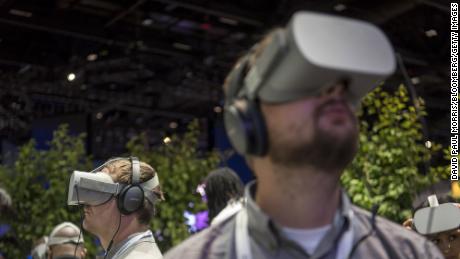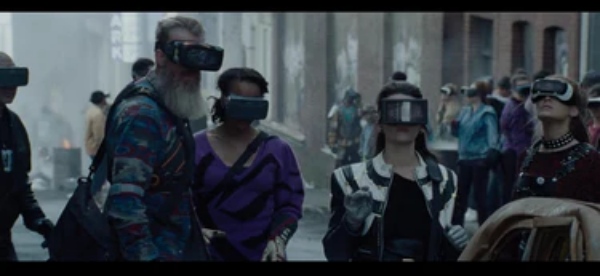Mark Zuckerberg is Nolan Sorrento
He sure is, isn’t he?
Ever heard of the “Metaverse”? It is, as CNN wrote last week, one of the current “favorite talking point[s] among startups, venture capitalists and tech giants”, starting with Facebook. Zuckerberg himself said that Facebook should become a “metaverse company”.
The basic idea behind the Metaverse, or at least the only one really compatible with the “startups, venture capitalists and tech giants” of today, is simple: since real life sucks, make money by giving people something to forget it. Something that hides real life, but seriously, not just a screen to watch in self-harming silence. In the Metaverse, people would feel “like they’re actually inside a virtual space with other people, seeing things in first-person, probably 3D”, and interacting with one another in real time:

If this sounds familiar, it’s because it is
“Make money by giving people something to forget life” is one of the oldest business models around. Even the Metaverse iteration is not new at all:
“In 2045, people escape from reality through a virtual reality simulation called OASIS… Nolan Sorrento, CEO of Innovative Online Industries (IOI), seeks control of the OASIS so he can insert intrusive online advertising”:

The synopsys of Ready Facebook One continues here, but I highly suggest viewing the full movie. Relevant differences between Nolan Zuckerberg’s vision and OASIS are left as exercise for the reader. While looking for them, take Divide et Impera into account.
Divide (in the Metaverse) et Impera (everywhere)
Divide and Rule policy (Latin: Divide et Impera) consists of gaining and maintaining power by actively keeping your subjects separated in groups that ignore or fight each other, and thus can never coordinate against you.
The Metaverse the tech industry is after has Divide et Impera built in from the start. From the CNN piece, again, its risks include:
- creation of even steeper divides between “haves, who can afford to pay for an ad-free headset or metaverse experience, and have-nots who can’t, replicating inequalities present in the real world” ( Divide!)
- control, as in “If you can now replace somebody’s entire reality with an alternate reality, you can make them believe almost anything” (Impera!)
QED.
Who writes this, why, and how to help
I am Marco Fioretti, tech writer and aspiring polymath doing human-digital research and popularization.
I do it because YOUR civil rights and the quality of YOUR life depend every year more on how software is used AROUND you.
To this end, I have already shared more than a million words on this blog, without any paywall or user tracking, and am sharing the next million through a newsletter, also without any paywall.
The more direct support I get, the more I can continue to inform for free parents, teachers, decision makers, and everybody else who should know more stuff like this. You can support me with paid subscriptions to my newsletter, donations via PayPal (mfioretti@nexaima.net) or LiberaPay, or in any of the other ways listed here.THANKS for your support!